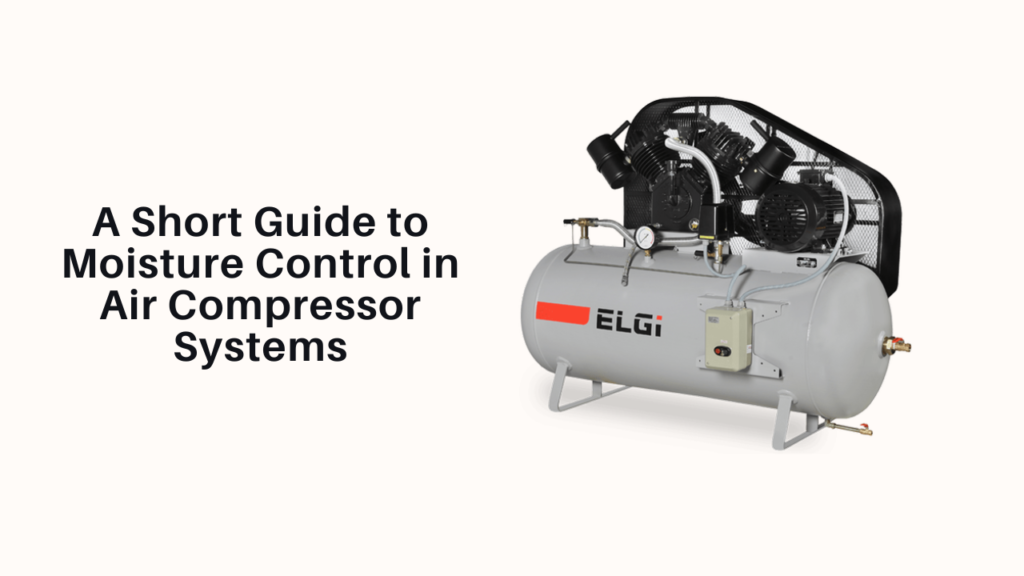It’s not uncommon for moisture and condensation to accumulate in your compressed air systems. Hence, you need a solution that can help prevent excess condensation in your compressor, especially if you’re in an industry that demands 100% moisture-free condensed air.

Why does your air compressor contain moisture?
Moisture is a natural by-product of the compression process. It just extracts the moisture that already exists in the ambient air.
Some of the common causes of moisture build-up in compressors are:
- Equipment damage – When the internal parts of compressors wear out, it leads to moisture build-up. This causes the machine to lose its power to extract air as well as heat up, leading to more moisture build-up.
- Environmental factors – Humid conditions also cause the machine to take in more moisture leading to more condensation.
- Pressure on the compressor – When your compressor is strained beyond capacity, it gets heated up further more. This is especially the case with piston compressors, which heat up more when used for longer periods of time.
Why is excess moisture harmful?
Excess moisture hampers the workings of your air compressor. Some of the consequences of excess moisture are:
- Rust and corrosion – Build-up of water in your compressors can lead to rust in and corrosion of the machine and pipes.
- Damage to pneumatic controls – The machines that rely on pneumatic controls suffer from severe damage when there is moisture build-up inside them. That can result in rust and scale build-up.
- Rapid wear and tear of production equipment – Moisture can cause the lubrication inside compressors to wash away. This causes metal components to wear away faster.
- Damaged circuits and in-line filters – In-line filters help clean particles and oil from your compressor. Moisture increases pressure in the machine and reduces the filter’s efficiency.
- Contamination – Moisture can damage end products, valves, and motors. It can easily contaminate solvents, lubricants, and food products.
How to eliminate excess moisture from your compressor?
Some of the solutions you can try out to remove moisture build-up from your compressors are:
- Install an air dryer – An air dryer works in tandem with an air compressor to remove moisture. There are four common types of air dryers: refrigerated dryers, desiccant dryers, membrane dryers, and deliquescent dryers.
- Get a piping system – Piping systems are one of the most cost-efficient systems. In these setups, the metal pipes absorb heat to bring down the air temperature, and can be a good solution for office buildings.
VEMC is ISO 9001:2015 certified and a pioneer in the field of electromechanical engineering products, allied equipment, and services. With more than 72 years of industry experience, we provide best-in-class solutions and customized support in this field. We also provide a number of ELGi air compressors. Contact us at +919819907445 and we would be happy to help you determine the right air compressor for your needs.

